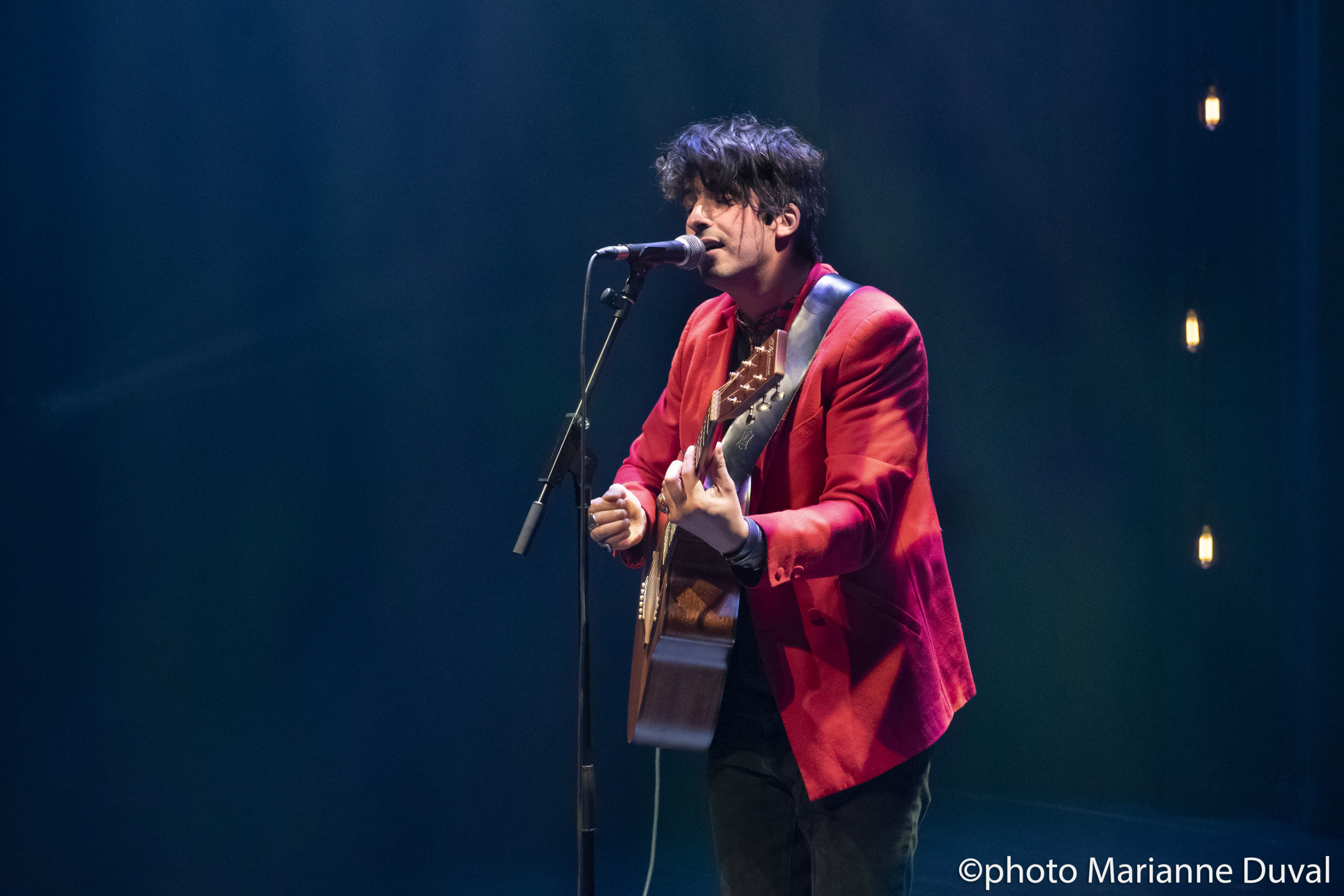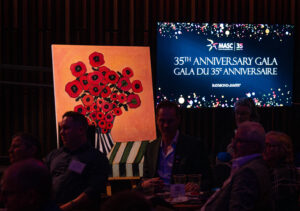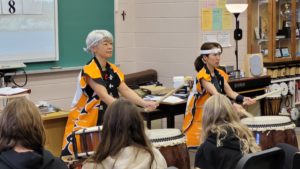Interview: Mehdi Cayenne, an artist who defies categorization
By Jessica Ruano | January 4, 2022

This interview was originally published on Apt613.ca
Singer-songwriter, poet, writer, actor, radio columnist: Mehdi Cayenne is a free spirit from the Francophonie, a quick-witted chameleon who writes over, under, and outside the box. Charismatic, energetic, and edgy, he has been offering writing workshops with MASC for over 10 years. In this interview, Mehdi talks about living and working within and outside many boxes in the arts and various cultural communities.

Mehdi Cayenne. Photo: Marie-Ève Rompré.
MASC: As an artist, you cover a lot of ground: From spoken word to theatre, music, television, and radio – and in both languages! What do you feel are some of the pros and cons to being a chameleon in the arts community, rather than sticking with one art form?
Well, all these titles have come from me trying to define what it is I do, rather than setting out to acquire all these labels/laurels. Hence, my contribution to all these mediums is ultimately quite modest. I think all these branches are from the same tree, and have evolved from a voracious interest in art, and from need as well. On one hand, I am fascinated by the commonality of language in these various practices, and also the phone rings and I say yes if I feel I can bring something to it, and grow.
Of course, all these outgrowths don’t have the same size; one concentrates on this one or that one, both by whim and by circumstance. I try to be disciplined and water the garden equally, so to speak. Besides, growth in one inevitably leads to growth in another as well; I do my best to constantly develop some kind of artistic sensibility, which tends to produce considerable overhauls in my overall navigation of my artistic landscape.
I think this variety can make it harder to find a true “box” for me – which it seems has its value in marketing – but frankly, since I relate the multiplicity and paradoxes of my artistic practice directly to those of my identity, I don’t really worry about it too much: You must first bring who you really are to this game, and this is who I really am.
MASC: How has COVID-19 changed the way you create and share your work? What new things have you learned about the various ways in which we experience live performance?
Well, I started doing online live performances furiously at the start of the pandemic, which has its share of challenges (both inspiring and tedious ones!). Over time and in parallel, I’ve developed as a videographer, which allows me to experiment sometimes with a more sophisticated approach, trying to capture in a more cinematic language what a performance is about, and use the opportunity to be closer than one could be on a stage.
Cinematic desires aside, performing for a camera to an invisible audience – or a parking lot full of cars honking etc. etc. – is nobody’s ideal context for getting energy from a crowd, but the imperfection, the awkwardness, opens a door where special moments can still be lived, however paradoxically. You know what they say about life handing you lemons…

Medhi teaching and having fun. Photo provided by MASC.
MASC: This week we celebrate Franco-Ontarian Day on September 25. What does this cultural celebration mean to you as an artist?
I’ve got love, appreciation, and the warmth of many memories for Franco-Ontarian culture. When I think Franco-Ontarian, I think of people, and places, of art, of culture.
My sense of identity within the multiple cultures I’m from, my sense of belonging, has always been found to me in the conversation between all these identities. Hence, though, I can’t really say “Hey, this represents me totally!” In regards to Franco-Ontarian, Québécois, Acadian, French, or Algerian cultures, I have great affection and gratitude for each branch of this tree (what’s with the tree metaphors today, eh?).
MASC: You studied theatre at De La Salle High School in Ottawa. How does it feel to be returning to your school (and others in your home community) to share your music?
It’s fantastic! I have actually returned to a few schools I’ve studied in, which is always a wonderful experience. More generally, though, I have a profound excitement and gratitude to be invited to enrich students’ lives, even as they enrich mine, truly. It is a great privilege to interact with young people, for their honesty, their openness, their bravery. I think workshops and school shows provide a special window for affecting someone in a very memorable way, that radiates – to me – a gentle beauty, as it is far away from the decorum of usual “showbiz,” you know? You’re in a gymnasium or a library or a class, and you are measured by how much you are truly willing to give to that moment, to these particular students. It is an honour and a joy.
MASC: As a member of MASC, what do you gain through offering your workshops in schools and in the community?
What’s not to like? I get to meet people of all ages and walks of life, in a variety of unusual contexts: Poetry series at the Youth Services Bureau with at-risk youth, an elderly supper show at a Hull old-age residence, having four-year olds yelling for joy at the top of their lungs, an after-school songwriting program with youth in the community from all over the world… I belong to a long chain of troubadours and griots and road dogs, and this is the kind of stuff that makes a life, not just a living.

Mehdi and students enjoying some music together. Photo provided by MASC.
MASC: Why do you think it’s important for our local community to have access to professional artists?
I think awareness, self-expression, and self-actualization are crucial in everyone’s development. Pointing towards that window, as an artist does when passing through a class, supports the work done by the whole community to bring the best out of our youth – our future – and that can only bring good to the world. Listening, being sensitive to the world within and without, makes for not just better artists, but better people, too.
Latest News
View All Articles



